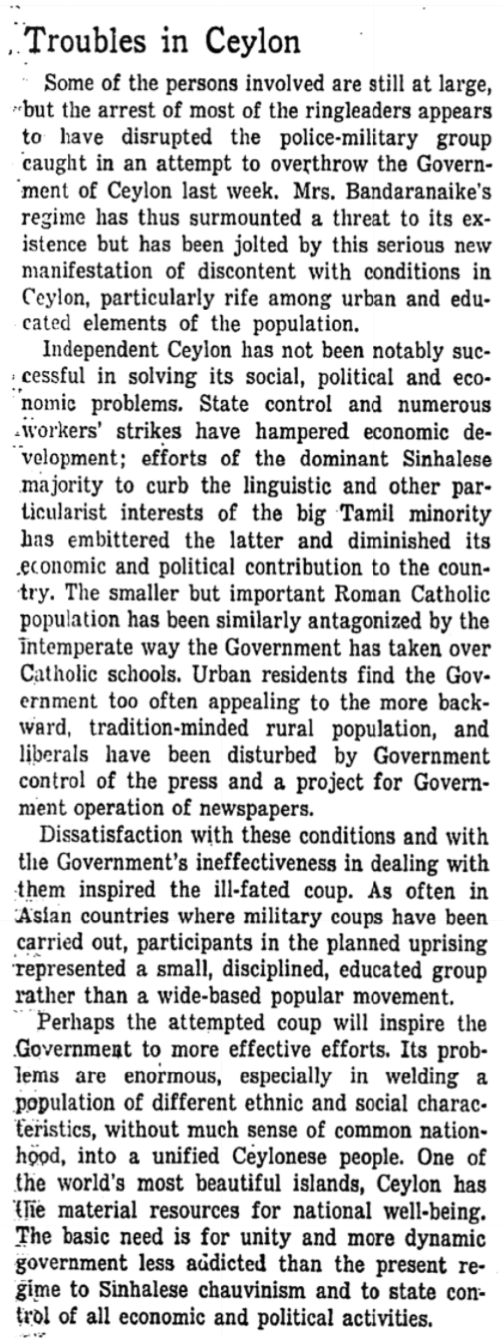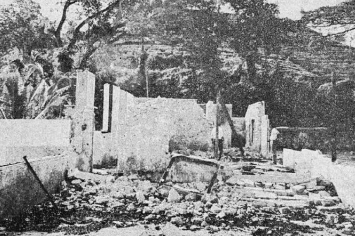International Success and Domestic Failure: The World’s First Female Prime Minister and the Changing of Sri Lanka’s Official Language
People's Dissatisfaction
“Sirimavo Bandaranaike.” British Broadcasting Company.
Under Sirimavo Bandaranaike’s government, religious and class divisions caused Sinhalese Buddhists to become more wealthy, forming a new group of elites. Previously, elites were mainly white, Christian, or Burgher (Portuguese or Dutch in origin). After independence, the Sinhalese, no longer oppressed by the British, moved to replace the Burgher elites.
In 1961, people began leaving Sri Lanka in search of a better life for their families. Two years into Bandaranaike’s first term, in 1962, a group of predominantly Chiristian elites attempted a coup d’etat on Bandaranaike’s government.

"Troubles in Ceylon." The New York Times. Feb 10, 1962.
Many younger people including Tamils believed that unemployment was worsening under Bandaranaike and the SLFP. In 1971, another coup was attempted by the JVP, a group of revolutionaries.

"Ceylon: the JVP uprising of April 1971." Colombo Telegraph. 1971.
Bandaranaike’s government met this attempted coup, which destroyed police stations, with violence, killing an estimated 1,000 people and arresting 10,000.

“The Police Station of Deniyaya in Sri Lanka.” Wikimedia Commons. April 7, 1971.